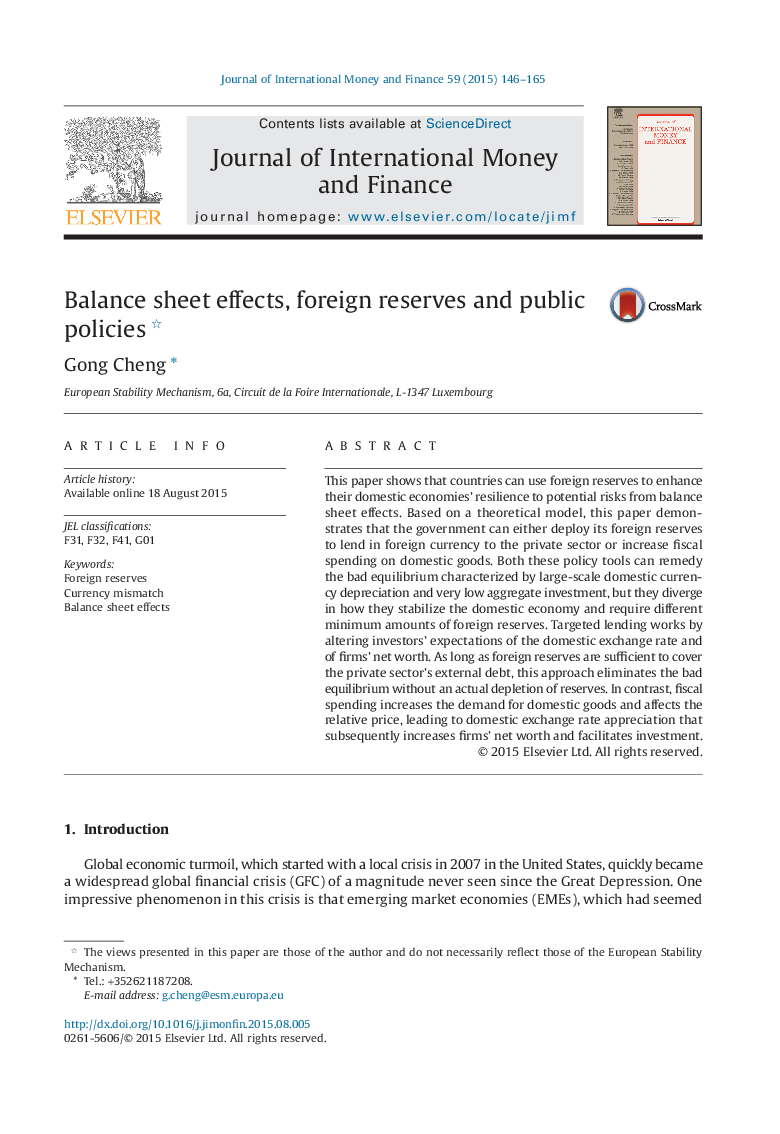| کد مقاله | کد نشریه | سال انتشار | مقاله انگلیسی | نسخه تمام متن |
|---|---|---|---|---|
| 963834 | 1479159 | 2015 | 20 صفحه PDF | دانلود رایگان |
• Foreign reserves provide state-contingent insurance against balance sheet effects.
• The bad equilibrium can be eliminated by either direct lending or fiscal spending.
• Lending policy alters investors' expectations of the domestic exchange rate.
• Lending policy requires less foreign reserves than fiscal spending.
This paper shows that countries can use foreign reserves to enhance their domestic economies' resilience to potential risks from balance sheet effects. Based on a theoretical model, this paper demonstrates that the government can either deploy its foreign reserves to lend in foreign currency to the private sector or increase fiscal spending on domestic goods. Both these policy tools can remedy the bad equilibrium characterized by large-scale domestic currency depreciation and very low aggregate investment, but they diverge in how they stabilize the domestic economy and require different minimum amounts of foreign reserves. Targeted lending works by altering investors' expectations of the domestic exchange rate and of firms' net worth. As long as foreign reserves are sufficient to cover the private sector's external debt, this approach eliminates the bad equilibrium without an actual depletion of reserves. In contrast, fiscal spending increases the demand for domestic goods and affects the relative price, leading to domestic exchange rate appreciation that subsequently increases firms' net worth and facilitates investment.
Journal: Journal of International Money and Finance - Volume 59, December 2015, Pages 146–165
